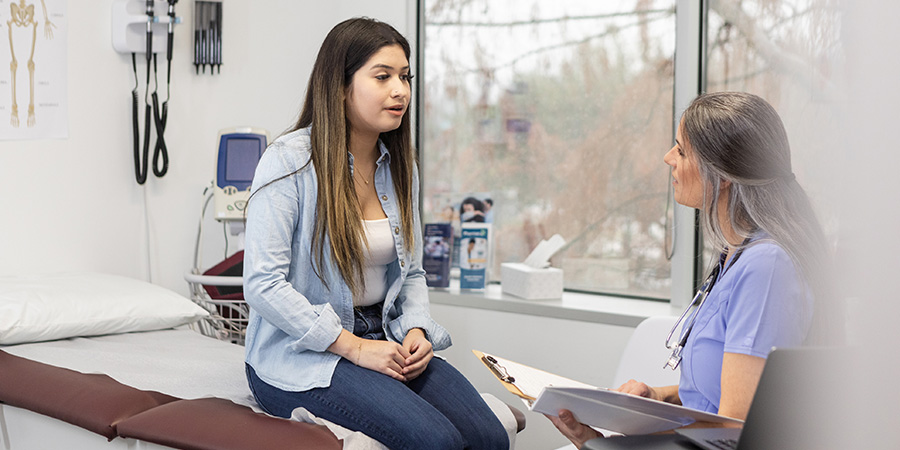
A trip to the gynecologist can cause anxiety at any age, but it may be especially stressful for first time visitors. If your daughter is going to her first gynecology appointment, knowing what to expect may help ease her nervousness. To best prepare her, discuss what she can expect at her visit.
The American College of Obstetrics and Gynecology (ACOG) now recommends young women have their first visit with a gynecologist between the ages of 13 and 15. However, new guidelines do not recommend routine pap smears until age 21, which could alleviate some worry for teens. This means that an invasive pelvic examination is usually not necessary. The first visit may be just a talk between her and her doctor to establish a rapport and level of comfort.
Three Main Goals of a First Gynecology Visit:
Information – At this visit, your daughter can get accurate answers to questions she has concerning sexuality, her changing body and other female-related concerns.
Prevention – She can learn about disease prevention, understand the importance of the HPV vaccine, and how to live a healthy lifestyle.
Treatment – For girls who are experiencing difficulties related to their period, pelvic pain or other reproductive problems, the doctor can assess their condition and offer appropriate treatment options.
Additional Topics to Discuss before Your Daughter’s Visit:
Review Family History – At her appointment, your daughter will be asked about her own medical concerns, as well as family history. Review your family history with her, including as much information as you can about siblings, parents, grandparents, aunts and uncles. Consider writing it down for her, so she won’t forget any details.
Suggest Writing a List of Questions – Your daughter probably has questions of her own, but she may get nervous or forget to ask once she’s in the exam room. Encourage her to write them down and bring them with her. Common topics include questions about her period, body changes, acne, weight, sexuality, birth control and disease prevention.
Encourage Your Daughter to be Honest – Doctors can most effectively treat a patient who is honest and open with them about sensitive issues like sexual activity, drugs or alcohol experimentation, and any mental health issues. It is important to encourage your child to be prepared for personal questions. If she’s worried about confidentiality, these concerns can often be alleviated as most sensitive topics are considered confidential between her and her doctor.
Preparing your child with accurate information and reassuring her about privacy will make her more confident and secure at her first gynecological appointment.
CHKD offers pediatric and adolescent gynecology services at CHKD’s main hospital in Norfolk, the CHKD Health Center at Oyster Point in Newport News and the CHKD Health Center in Williamsburg. To make an appointment, please call (757) 668-9330.
Watch | More from Dr. Focseneanu in this parenting segment on WVEC-13NewsNow.






